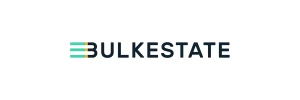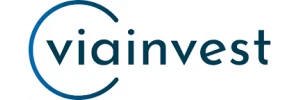Company Profile: SoFi's Evolution in the U.S. Financial Landscape
SoFi Technologies, Inc., commonly known as SoFi, stands as a prominent digital-first financial services company within the United States. Founded in 2011 by Stanford graduate students, its initial mission was to provide student loan refinancing, leveraging an innovative peer-to-peer lending model funded by alumni. Over more than a decade, SoFi has significantly expanded its scope, transforming into a comprehensive financial platform and a full-service, branchless digital bank. Incorporated in Delaware, its principal executive offices are located in San Francisco, California, and the company is publicly traded on NASDAQ under the ticker SOFI.
SoFi's current business model is diversified across three core divisions: Lending, Technology Platform, and Financial Services. The Lending division directly originates various loan products, which is the focus of this review. The Technology Platform, known as Galileo, provides application programming interfaces (APIs) that power banking services for other businesses, demonstrating SoFi's broader influence in the fintech ecosystem. Finally, its Financial Services arm encompasses brokerage, insurance, and transactional services, aiming to cater to a wide spectrum of financial needs for its members. This holistic approach aligns with its strategy to attract and retain millennials and next-generation professionals, emphasizing seamless digital experiences and a "land-and-expand" cross-selling model.
Leadership at SoFi is helmed by Anthony Noto, who has served as Chief Executive Officer since 2018. The executive team also includes Michelle Gill as President, Mike Cagney (Co-Founder & Former CEO) in an advisory role, Tom Nally as Chief Financial Officer, and Jack P. Gruber as Chief Operating Officer. This leadership has guided SoFi through significant growth, including the acquisition of a national bank charter, solidifying its position as a major player in the U.S. online lending and financial technology sectors.
SoFi's Comprehensive Lending Products and Terms
SoFi offers a diverse portfolio of lending products designed to meet various financial needs of American consumers. Each product comes with specific loan amounts, interest rate ranges, term lengths, and fee structures, which are important for potential borrowers to understand.
- Student Loan Refinancing: For individuals looking to consolidate or reduce payments on existing student loans, SoFi offers refinancing options ranging from $5,000 to $500,000. Annual Percentage Rates (APRs) can be either fixed, from 3.43% to 15.99%, or variable, from 4.64% to 15.99%. Variable rates are capped at 17.95%. Loan terms typically span 5 to 20 years. Notably, SoFi distinguishes itself by charging no origination, prepayment, or late fees for student loan refinancing. The listed APRs often include discounts for autopay (0.25%) and membership (0.125%), making it beneficial for those who utilize other SoFi services. These loans are unsecured.
- Personal Loans: Catering to a broad range of personal financial needs, SoFi provides unsecured personal loans from $5,000 to $100,000. APRs generally fall between 8.99% and 35.49%, often with available discounts. Repayment terms are flexible, typically ranging from 2 to 7 years. Similar to student loans, SoFi does not charge origination or prepayment fees on personal loans, which can be a significant advantage for borrowers.
- Mortgages & Refinancing: For homeownership and property-related financing, SoFi offers mortgages and refinancing options from $75,000 to $3 million. As of Q3 2025 market data, approximate 30-year fixed APRs ranged from 3.125% to 7.875%, though these rates are subject to market fluctuations and state-level licensing. Terms are typically 15 to 30 years. Unlike its unsecured loan products, mortgages may include an origination fee, generally between 0.25% and 1.00% of the loan amount, along with other standard third-party closing costs. However, no late fees are typically charged. These loans are secured by real estate.
- Home Equity Lines of Credit (HELOCs): Homeowners can access the equity in their homes with HELOCs ranging from $10,000 to $500,000. These lines of credit typically feature variable APRs from 4.50% to 14.99%. The structure involves a 10-year draw period followed by a 20-year repayment period. SoFi does not impose origination or prepayment fees on its HELOCs, making them an attractive option for flexible access to funds. These are also secured loans.
- Auto Loans: For vehicle purchases or refinancing existing auto loans, SoFi offers secured auto loans between $5,000 and $100,000. APRs range from 2.74% to 16.74%, with repayment terms from 3 to 7 years. There are no origination fees, but a late fee of $15 may apply if payments are not made on time.
Across its unsecured loan products like student loan refinancing and personal loans, SoFi maintains a competitive edge by largely eliminating common fees such as origination, prepayment, and late fees. For secured loans like mortgages and auto loans, standard industry practices for origination and third-party fees apply, though SoFi still strives for transparency and competitive terms for its members.
Application Process, Digital Experience, and Regulatory Framework
SoFi's commitment to a digital-first strategy is evident in its streamlined application process and robust online platforms. Potential borrowers can apply for any of SoFi's loan products through its intuitive mobile application, available on both iOS and Android, or directly via its comprehensive website. The application process begins with automated identity verification, often leveraging services like Plaid and Experian, requiring applicants to provide a U.S. Social Security Number, proof of income, and employment details.
SoFi employs proprietary data-science models for credit underwriting, moving beyond traditional FICO scores by incorporating alternative data points such as education and income trajectory. This approach aims to provide a more holistic view of an applicant's financial stability. For variable-rate loans, the interest rates are typically based on the Secured Overnight Financing Rate (SOFR) plus a specific margin. Once approved, loan disbursements are generally made via ACH direct deposit to the borrower's bank account. For mortgages, funds are wired directly to the escrow account. SoFi manages collections and recovery through automated reminders and an in-house team, with charged-off accounts potentially leading to loan sales or securitizations.
The SoFi mobile app, boasting high ratings (4.8 stars on the App Store and 4.6 stars on Google Play), is a cornerstone of its user experience. Key features include instant prequalification, easy setup for autopay, personalized financial insights, and in-app customer support. The website complements the mobile experience with a high-performance React-based portal offering loan calculators, investment dashboards, and in-browser chat support. SoFi is licensed to operate in all 50 U.S. states and holds a national bank charter through SoFi Bank, N.A., which means deposit products are Member FDIC insured. Investment accounts are also protected by SIPC insurance.
As a regulated financial institution, SoFi operates under the oversight of key bodies including the Federal Deposit Insurance Corporation (FDIC), the Consumer Financial Protection Bureau (CFPB), and various state banking authorities. It adheres to strict consumer protection guidelines, offering transparent disclosures and flexible payment options for its members. While SoFi faced a Federal Trade Commission (FTC) consent order in 2017 regarding misleading marketing practices, these issues were fully remediated by 2018. Since obtaining its national bank charter in 2022 through the acquisition of Golden Pacific Bancorp, SoFi has maintained a strong compliance record with no significant regulatory penalties.
Market Position, Competitor Landscape, and Member Insights
SoFi has carved out a significant niche in the highly competitive U.S. financial services market, establishing itself as the largest online student loan refinancer and ranking among the top five online personal lenders by volume. Its primary competitors include other digital-first lenders and traditional institutions with strong online presences, such as Earnest, LendingClub, and Marcus by Goldman Sachs. However, SoFi differentiates itself through several key factors.
A crucial differentiator is its national bank charter, which allows SoFi to offer a broader range of deposit products and operate more like a traditional bank while maintaining its digital agility. The company's "all-in-one" membership model encourages members to consolidate their financial lives with SoFi, leveraging multiple products and services. Furthermore, its Galileo B2B platform, which powers banking services for other fintech companies like Varo Money and Green Dot, provides an additional revenue stream and strengthens its position in the broader financial technology ecosystem. Strong brand partnerships, including benefits programs with companies like Marshall’s and Peloton, further enhance its appeal and reach.
SoFi's growth trajectory remains robust. The company reported a 34% year-over-year increase in members, reaching 11.7 million by Q2 2025. Its customer base primarily consists of younger, upwardly mobile professionals, with an average member age of 29 and an average income of $85,000, split approximately 55% male and 45% female. This demographic focus underscores its strategy to serve the financial needs of the next generation of consumers.
Customer reviews and ratings generally reflect a positive experience. On Trustpilot, SoFi holds a 4.2 out of 5 rating from over 3,500 reviews, with many praising its competitive rates and smooth digital user experience. The mobile app also receives high marks, with 4.8 out of 5 stars on the App Store from over 120,000 ratings, often citing easy application processes and valuable member perks. Common issues reported by a minority of users include occasional service delays during peak origination periods and minor discrepancies in funding timing. To address member needs, SoFi offers 24/7 customer service via phone, chat, and in-app support, with an average first response time of less than two minutes and a reported 72% resolution rate on the first contact.
Practical Advice for Potential Borrowers and Financial Performance
For individuals in the United States considering SoFi for their lending needs, a thoughtful approach can ensure a positive borrowing experience. First, it is crucial to thoroughly review the specific eligibility requirements for each loan product, which typically include a U.S. Social Security Number, proof of stable income, and verifiable employment details. While SoFi considers alternative data in its underwriting, a strong credit history remains beneficial for securing the most competitive rates.
Potential borrowers should carefully compare the Annual Percentage Rates (APRs), paying close attention to whether they are fixed or variable, and understanding how available discounts, such as those for autopay or being a SoFi member, might affect the overall cost of the loan. It is also wise to understand the fee structure specific to each loan type; while SoFi prides itself on offering many loans without origination, prepayment, or late fees, secured products like mortgages may have standard industry charges. Leveraging the SoFi mobile app can be highly beneficial for managing applications, tracking loan progress, and accessing financial insights once approved.
Before committing, reading recent customer reviews on platforms like Trustpilot or the app stores can provide valuable insights into common experiences and potential service issues. Moreover, evaluating the benefits of SoFi's "all-in-one" membership model might be worthwhile for those seeking to consolidate multiple financial services under one roof. The platform's commitment to transparency, Member FDIC insurance on deposit products, and SIPC insurance on investment accounts offer additional layers of consumer protection.
From a financial performance standpoint, SoFi continues to demonstrate strong growth and increasing profitability. In Q2 2025, the company reported adjusted net revenue of $858.2 million, marking a 44% year-over-year increase. Adjusted EBITDA reached $249.1 million, an 81% increase year-over-year, and GAAP net income stood at $97.3 million. For the full year 2024, SoFi achieved GAAP profitability in Q4, with total assets reaching $27.98 billion. The company has attracted significant investment, raising over $5 billion across various funding rounds from major institutional investors including SoftBank, Third Point Management, and Silver Lake. Since its inception, SoFi has funded over $50 billion in loans, with active loans totaling approximately $32 billion as of Q2 2025. Its net charge-off rate remains low, below 1.5% for personal and student loans, indicating effective risk management within its portfolio. This strong financial foundation supports SoFi's continued expansion and its position as a leading fintech innovator in the United States.








